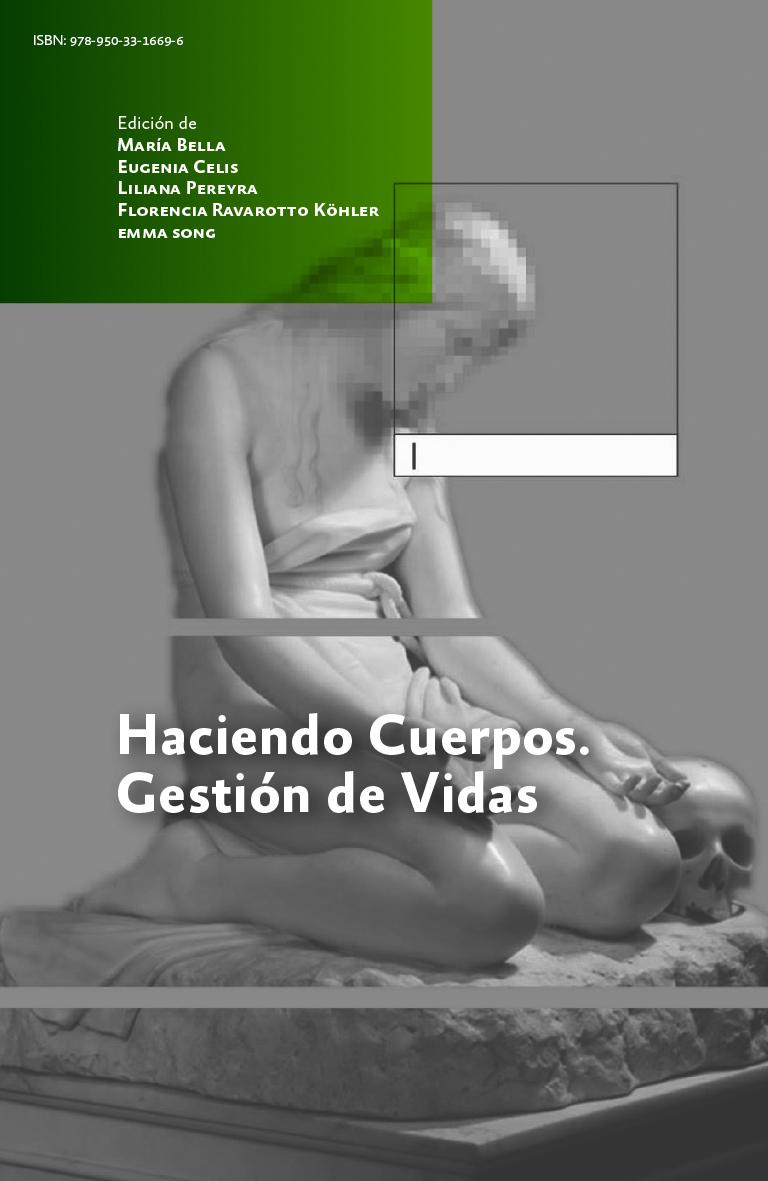Making Bodies. Managing Lives
Keywords:
human body - social aspects, biopolitics, sexuality - social aspects, gender identity, gender studies, feminism - theory, queer theory, subjectivity - social aspects, neoliberalism - social aspects, care - philosophical and social aspects, Córdoba (Argentina) - social life and customs, National University of Córdoba, sexual dissidence - studies, psychoanalysis and gender, sex work - social aspects, comprehensive sex education - gender perspective, emotions - social aspectsSynopsis
Making Bodies. Managing Lives is the name of an interdisciplinary undergraduate seminar offered by the FFyH-UNC between 2015 and 2018. The seminar aimed to generate a link between teaching and research and originated in the work of the research team of the same name (SECyT-UNC) based at the María Saleme de Burnichon Research Center (CIFFyH-FFyH-UNC).
The proposal of the teaching team, whose composition was always markedly interdisciplinary, initially focused on investigating the analytical potential of Foucauldian biopolitics, feminist thought, and queer/cuir theory for addressing situated research, paying special attention to local processes. These topics and issues generally share a common focus on bodies, always understood as sexual bodies—whether individual or collective—their materiality, their discursivity, and the narratives that are constructed and/or imposed upon them.
As its editors maintain, this e-book is a pause to reflect on the work that students and teachers carried out within the framework of the seminar and aims to recover the discussions that took place within that space, going beyond it.
Haciendo Cuerpos. Gestión de Vidas is part of the CIFFyH Collections, an initiative of the María Saleme de Burnichon Research Center (FFyH) in conjunction with the FFyH Publications Department, which seeks to strengthen the production and dissemination of the work of the Center's research groups, encourage the participation of students, graduates, and teachers in the production and circulation of knowledge, and generate institutional spaces that enable such circulation.
Chapters
-
Prelude
-
Overture
-
Introduction to a body program
-
First movement
-
Toolbox. Approaching Foucaultian biopolitics
-
Scientific theories are also politicaldichotomies as operations of invisibilization
-
Neoliberal governmentality and entrepreneurial subjectivitya (heterogeneous) proposal for sociocultural research
-
Second movement
-
Sex work in Córdobabiopolitics, sex, and bodies The Law on the Prevention of Venereal Diseases and the role of the press and the State in controlling the bodies of sex workers in 1938
-
Mental health as optimization of (hetero)sexuality. In Therapy and Divan Stories, therapeutic fictions?
-
Writings. Notes for thinking about parenting, biopolitics, and psychoanalysis
-
Disrupting bodies, unlearning norms ESIbiopolitics, starting point and future
-
The discourse of lynching. Discourse on social media and lynchings in Córdoba in 2013
-
Third movement
-
The hand that writes to me also trembles. Contributions to a writing of self
-
The dark room of a thesis. Positions and demands of an activist who investigates
-
Map, display, archive
-
Raise your hand like me
-
Fourth movement
-
Recording other ways of sheltering Some questions about care from Sylvia Molloy's “Disarticulations” and an archival exercise
-
What do prostitutes do? Who takes care of prostitutes? An ethnographic approach to the links between individuals who offer/hire sexual services in the city of Córdoba, Argentina
-
Bodies in transit? Experiences and feelings of foreign students at the Faculty of Arts
-
Amorous vertigo

Downloads
Published
Series
Categories
License

This work is licensed under a Creative Commons Attribution-NonCommercial-ShareAlike 4.0 International License.


